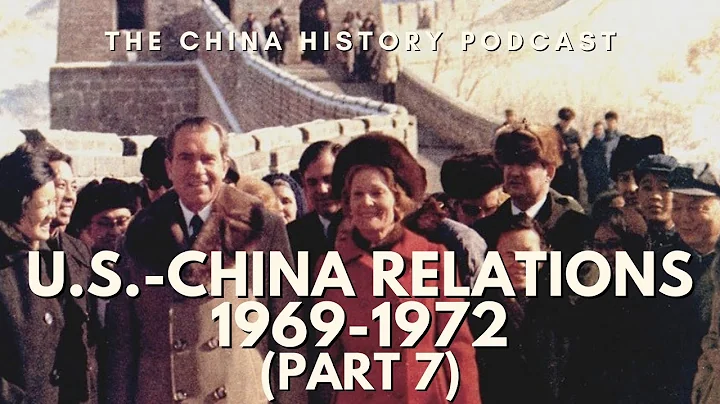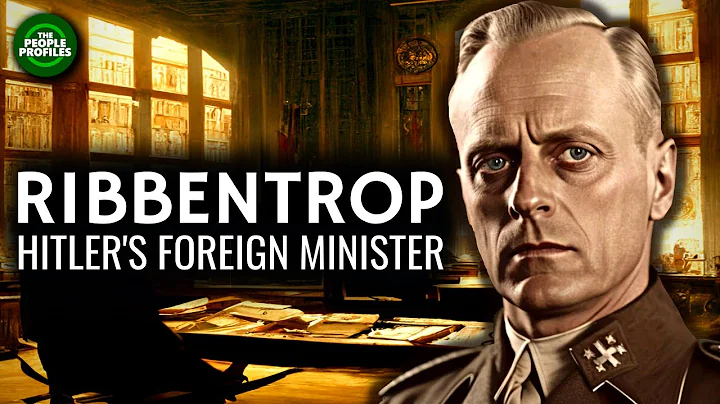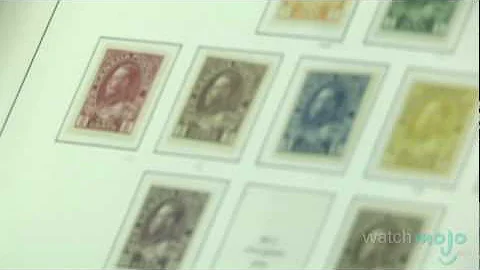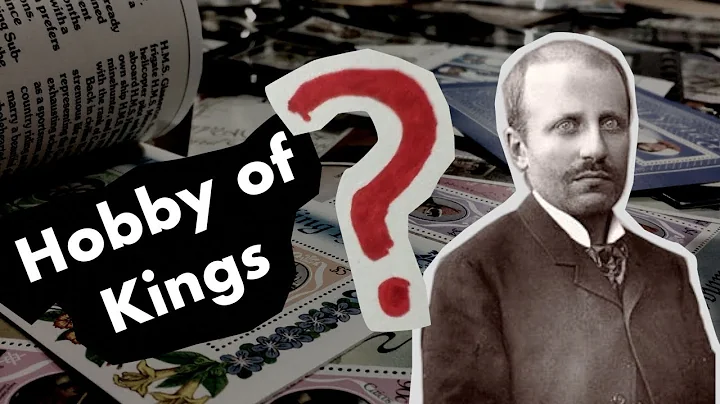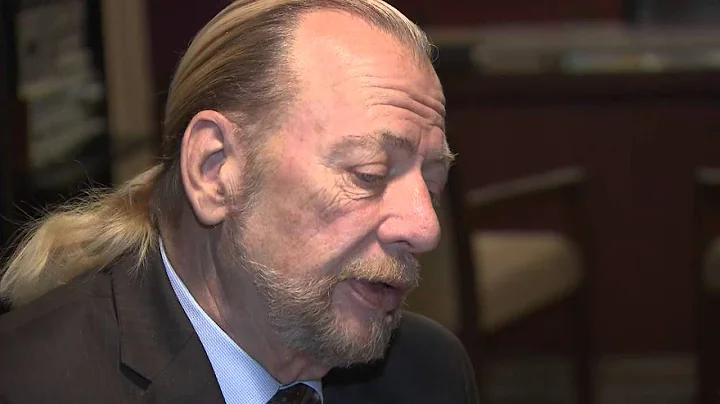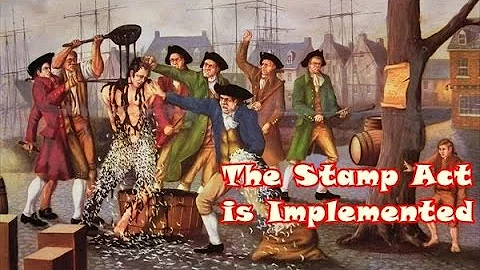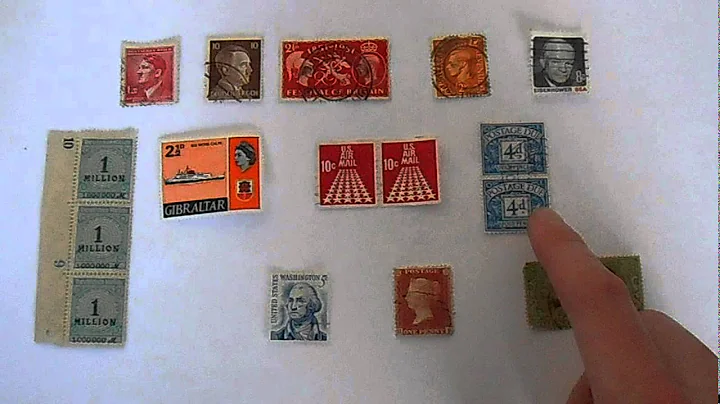In December 1949, when New China was just founded, Chairman Mao personally led a delegation to visit the Soviet Union.
This visit lasted for two months. Chairman Mao spent his 56th birthday in the Soviet Union and the Spring Festival in Moscow. He did not return to China until February 1950. A lot of interesting things happened during
. Let’s put aside the heavy political background and just play back the anecdotes during this visit.

1. Four sets of clothes made Chairman Mao anxious
Chairman Mao visited the Soviet Union at the beginning of the founding of the People's Republic of China. In addition, this year coincides with the 70th birthday of Stalin . The Soviet Union will hold a grand birthday celebration for Stalin. Naturally, China must Attach great importance and arrange carefully.
For example, what clothes did Chairman Mao wear?
Chairman Mao is famous for his frugality. After decades of war, he has always lived a frugal life. He does not pay attention to his clothes, just ordinary worn-out Chinese tunic suits , and many of his clothes are patched.
But you can’t be so casual when visiting abroad. Zhou Enlai personally arranged Chairman Mao's clothes and suggested an all-black dress, black tunic, black leather shoes, and black socks.
Chairman Mao felt that this color was too heavy and he was unwilling to wear it. Said he wanted to wear gray clothes.
Zhou Enlai went directly to the chairman for advice and explained the situation. Chairman Mao finally agreed.
Zhou Enlai arranged for the clothing department to prepare two sets of clothes in black and gray. Chairman Mao became anxious upon hearing this and said why it was so wasteful to make so many clothes.
In the end, Zhou Enlai came forward to explain that what you wear represents the image of the country, and our leaders cannot appear on the international stage wearing patchwork clothes.

Although Chairman Mao agreed, he still repeatedly told the staff: "There are too many new clothes made. If we were in Xibaipo we wouldn't make so many, and I would start to waste them! Remember, you can't make them again in the future. I have enough clothes to last me a lifetime."
I want to celebrate Comrade Stalin's birthday when I go to the Soviet Union. What gifts should I bring?
New China has just been established, and everything is waiting to be done, and nothing of value can be produced. After several discussions, we brought a truckload of Shandong green onions and Jiangxi tangerines, mainly to express our feelings. Comrade Stalin must also understand.
2. Chairman Mao’s illness incident
On December 6, 1949, Chairman Mao set off from Beijing on a special train.
On the train, Teng Daiyuan, the then Minister of Railways, explained to Chairman Mao: "This train was given to Chiang Kai-shek by the United States. Chiang Kai-shek never rode on it. It is said that only Song Qingling took it once."
The internal configuration of this train It's very good. It has bedrooms, offices, bathrooms, secretary rooms, etc. Chairman Mao is also very satisfied with it. Some comrades say that American products are indeed good. But as I walked, the person who said this shut up.
It was the middle of winter at that time. When the train reached the northeast, the temperature dropped to more than 30 degrees below zero. When we arrived in Changchun, the temperature on the train suddenly dropped rapidly, from more than 20 degrees to 15 degrees, and Chairman Mao had to put on more clothes. Unexpectedly, the temperature got lower and lower as we walked. After Changchun, it actually dropped to 5 degrees.
Chairman Mao added layers and layers of clothes, and gradually became a little unhappy. After asking, it turned out that the heating pipe on the train was frozen. Teng Daiyuan was so anxious that when he arrived at Changchun Station, he brought a locomotive and poured hot water on the heating pipe. It's freezing again.
Teng Daiyuan was so anxious that he didn’t know what to do. The staff on the railway came up to take a look and said that there was nothing that could be done. There was something wrong with the design of the pipe. It was fine in the south, but it could not adapt to the cold climate of Northeast China.
Teng Daiyuan had no choice but to ask the staff around the chairman what to do. The staff said: "Don't hide it. The chairman will not get angry because he is cold, but he will get angry because he is kept in the dark."
reported the real situation. As expected, Chairman Mao smiled and said: "It seems that American products are not necessarily good." This sentence dispelled Teng Daiyuan's uneasiness.
The train went abroad through Manzhouli , where it transferred to a special train from the Soviet Union that came to greet Chairman Mao. As soon as he got on the train, he felt warm. Chairman Mao said in front of the Soviet deputy foreign minister who came to receive him: "The train of the Soviet comrades is still warm. , much better than American trains." Everyone laughed.
The Soviet Union attached great importance to Chairman Mao's visit, and the reception was of the highest standard. Stalin also specially sent his guard captain and a full-time attendant to take care of Chairman Mao's life to Manchuria to accompany him to protect and take care of Chairman Mao.
The guard captain was called Belibech, and he was a colonel. After receiving Chairman Mao, he and the Chinese guard Li Jiaji had been responsible for Chairman Mao's safety. At that time, many Soviet diplomats were also on the bus. They were very curious about the leader of New China, and they all went to Chairman Mao's office to have a sneak peek at him. Colonel Belibech performed his duties faithfully, and mercilessly turned away anyone who had not arranged to meet in advance.
The waiter was about 60 years old and had lost all his hair. He had been taking care of Stalin's daily life for decades. He took care of Chairman Mao just like he did Stalin, with meticulous care and thoughtfulness. Chairman Mao had never enjoyed such meticulous service in China, which made him feel a little embarrassed.
The accommodation and living conditions were very good, and the service staff from both China and the Soviet Union also did a good job, but something worrying still happened: Chairman Mao was ill.
The train went to Siberia , where the temperature is much lower than that in Northeast China. When we walked to a city called Sverdlovsk, the train stopped for a long time - it needed to stop for water, food, train inspection, etc. The Soviet side kindly suggested that Chairman Mao should get off the train and move around. The Chinese staff also felt that Chairman Mao had been sitting in the car for a long time and might as well get out of the car and take a look.
Only Comrade Li Jiaji, Chairman Mao's bodyguard, felt that something was wrong. The temperature on the car was almost 28 degrees, while below the car it was more than minus 40 degrees. The temperature difference was too big. But they couldn't stand it anymore, and everyone urged Chairman Mao to go down and have a look. Chairman Mao was very interested, so he put on his coat and got out of the car. He walked from the front to the back of the car, curiously observing the Soviet city. As soon as he spoke, there was a strong sigh of relief.
Chairman Mao asked Li Jiaji, it seemed to be very cold under the car. How high was it? When Li Jiaji said it was more than 40 degrees below zero, Chairman Mao winced and said it was so cold.
When Li Jiaji heard that something was wrong with Chairman Mao's words, he quickly urged him to get in the car. As soon as he got in the car, Chairman Mao fell ill, dizzy, dizzy, and had a cold.
Li Jiaji was angry with his immediate bosses Wang Dongxing and Ye Zilong, saying that they were too careless. There was a temperature difference of nearly 70 degrees between the car and the car. None of us Chinese have ever experienced this, let alone the 56-year-old Mao Zedong. President.
Chairman Mao fell ill during his visit to the Soviet Union. The Soviet side suddenly panicked, kept asking what was going on, and even dispatched the best doctor to the car to see the doctor.
The car was noisy for a while. Chairman Mao woke up and heard the noise. When he got up and asked, he couldn't help laughing and said: "Don't make a fuss. The dizziness is the root cause of my illness during the Long March . It doesn't matter." He also repeatedly comforted the Soviet deputy foreign minister, telling them not to take it seriously and just sleep more.
3. Unaccustomed to living in a villa
Chairman Mao spent 10 days on the train before arriving in Moscow.
Chairman Mao's visit to the Soviet Union received an unprecedented warm and high-level welcome. Stalin led the Politburo members to greet him collectively and arranged Chairman Mao to a luxurious villa where Stalin himself had lived.
This villa was where Stalin lived during the World War II . It was not only a residence, but also a supporting underground command post. Stalin commanded the massive Patriotic War here.
The facilities here are unimaginable by Chairman Mao and others. The villa is hidden in a forest and cannot be found unless you get closer. The villa has three floors. Chairman Mao and guards, Ye Zilong, Shizhe and others live on the first floor. Wang Dongxing, Chen Boda and others live on the second floor. The third floor is the billiards room, movie room, etc.
After Chairman Mao moved in, although he was grateful for Su's high-level hospitality, he felt uncomfortable in every aspect.

The mattresses in the bedroom were very soft, some were duck down and some were velvet. Chairman Mao pressed the duck down pillow, frowned and said, how can I sleep on this?
It turns out that Chairman Mao was used to sleeping on simple hard beds and hard pillows in China. Li Jiaji and other guards had already thought of this. When they came, they brought over the bedding, pillows and sheets that Chairman Mao was used to, and just changed them. It's just that this bed is made of springs and is too soft. It bounces up as soon as you sit down.
Chairman Mao wanted to replace it with a hard bed. He was also afraid of inconvenience to the Soviet reception staff, so he asked Ye Zilong, Li Jiaji and others to think of a way to get a wooden bed.
Su Fang heard about it and quickly brought a hard board to lay on the bed. Chairman Mao felt relieved and solved the big problem of sleeping.
The leader of a country actually maintained such a simple style, and the Soviet receptionists were shocked. That's not all
is not used to.
Western architectural styles are used to creating tall and large rooms, which appear more spacious than Chinese houses. When Stalin lived here, he required that lights be turned on in the villa day and night, especially in the corridors, activity rooms, and offices. The lights were as bright as day. This was probably Stalin's personal habit, or maybe it was the Soviet security work habit.
Chairman Mao is not used to it. How could this have happened in China? Let’s not talk about the Yan’an period. Basically, kerosene lamps were used, and even candles were scarce items. After arriving in Hebei, the conditions were slightly better, but the electricity was also cut off from time to time, so how dare we waste so much.
Chairman Mao found that the lights were always on, so he asked the guards to turn them off, leaving only one in the corridor to illuminate. Sometimes he even turns off the lights himself to avoid waste. But not long after it was closed, the waiters from Su Fang opened it again.
Chairman Mao was very angry and gave Li Jiaji and others a lesson, telling them not to waste it like this. When Li Jiaji and others explained to the Soviet service staff, they all gave thumbs up and said, your Chinese leaders are great, you are so frugal, the heads of state who have lived here in the past have never cared about this, and your China will definitely be strong. There are two senior female waiters in the
villa. They enter the room to clean up clothes and wash clothes. Chairman Mao waved his hand and said that he did not need to use it, and then asked Li Jiayu and others to say that his clothes must not be washed people. We are responsible for ourselves. We are responsible for ourselves .
The waitresses responded that this was a task assigned by their superiors and must be completed, otherwise they would be criticized.
After repeated exchanges of opinions, Chairman Mao withdrew his opinions, symbolically gave them a few pieces of clothing to wash, and shook hands with them to express his gratitude.
Mao Zedong also took the initiative to ask them their names and where they lived. Perhaps they have never been in contact with the top leader and are extremely nervous when speaking. Later, I talked a lot and saw that Chairman Mao looked kind and spoke casually, so I let go of my nervousness. One of the waitresses said that her husband died in Northeast China.
Chairman Mao immediately stood up, shook hands with her again, expressed his gratitude to her and said: "We will always remember you and your husband. We Chinese people have another revolutionary friend."
4. Unfulfilled Vows
The Soviet side arranged for Chairman Mao to visit many places. Chairman Mao was also very interested. Unlike leaders such as Zhou Enlai, Zhu De and Deng Xiaoping, who had traveled to Europe in their early years, he inquired in detail and watched carefully wherever he went. .
Chairman Mao said that we should travel to the southeast, northwest and northwest of the Soviet Union. That is, from the west coast of the Pacific to Vladivostok, to the east coast of the Atlantic to the Baltic Sea, and then from the Black Sea to the Arctic Circle.
The Soviet side arranged for Chairman Mao to visit Leningrad. It was the birthplace of the Soviet revolution. After visiting the revolutionary sites, Chairman Mao proposed a visit to the Baltic Sea, which was what he said was a visit to the westernmost tip of the Soviet Union.
The Soviet side arranged a car and drove it all the way to the sea of the Gulf of Finland . It was a very cold day at this time. The sea and the land are connected together, and they are all white, and there is no way to distinguish the sea from the land. Chairman Mao drove on the ice for several hours. For safety reasons, the staff proposed not to drive on the ice.But Chairman Mao believes that watching this way is more poetic and allows you to better understand the elegance of nature.
At this time, Chairman Mao proposed to get off the car, and paced back and forth on the ice, looking around, and sighed: "This place is really frozen for thousands of miles!" The Soviet comrade said: "We are standing on the Baltic Sea. On the ice, there is sea water under the ice, and the thickness of the ice is about one to one and a half meters."
Chairman Mao returned to Moscow after arriving here. Since then, he has neither reached the Black Sea nor the Arctic Circle, and the easternmost place is Vladivostok. I didn’t go, and this vow was never fulfilled throughout my life.
After returning to Moscow, the Soviet Union saw that Chairman Mao was very interested and invited him to visit the famous underground railway.
According to the Soviets, the Moscow Underground Railway was one of the largest underground railway systems in the world at that time. It was officially opened to traffic in 1935. At that time, there was only one line, from Sokolniki Park to Smolensk Square in the city center, with a total of 13 stations and a length of 11.6 kilometers. It was later extended to more than 30 kilometers. There are more than 500,000 passengers every day.
Surprisingly, the design concept of the subway is very advanced. The layout of the subway is consistent with the ground, forming a radiating circular line, connecting the city center with most residential areas in the suburbs, and connecting several train stations. The subway operates an average of more than 8,000 trains every day, and during peak traffic times, the two trains are less than 80 seconds apart.
The architectural style is also extraordinary. Each station has its own unique style and different architectural patterns. Various reliefs and murals are decorated with colorful marble, granite , ceramics and colorful glass, and the lighting fixtures are also very unique. It is like a magnificent palace and has always been known as the "underground palace". Subways like
are not outdated even now. The Soviet Union was very proud and invited Chairman Mao to visit. Chairman Mao was originally in a very good mood. After entering the subway station, he found that there were not many people inside. There were magnificent and beautiful buildings, and only some staff were walking back and forth.
Chairman Mao asked what was going on and why there were no passengers. Shi Zhe asked Su Fang and found out that in order to ensure safety, Su Fang had implemented martial law and no passengers were allowed to enter.

Chairman Mao originally planned to take a subway ride to experience the daily life of the Soviet people. When he heard this, he immediately frowned and said unhappily: "Why is it so mysterious? How many thousands of people will be affected by martial law just for me?" , life, it’s really inappropriate, forget it, I won’t visit anymore.” He returned disappointed.
5. The Unhappiness of Lake Baikal
In February 1950, Chairman Mao ended his visit to the Soviet Union and set out to return to China.
met with Stalin in the Soviet Union, and the relationship between the two countries became closer. Chairman Mao was still very happy.
was in a better mood on the way back because he had put down all his work. Along the way, he watched the scenery with his entourage and constantly exchanged his feelings about the Soviet Union.
soon passed through Siberia, passing through a section surrounded by mountains. The train entered tunnels from time to time, and the interior of the car was bright and dark for a while. Chairman Mao began to count the tunnels with great interest. When they entered the plains, Chairman Mao asked everyone how many tunnels they had passed. He himself said that he had passed 41. But everyone said it was 40, and Chairman Mao laughed and said: "That's one more than I have."
The special train arrived near Lake Baikal, and everyone stretched their necks to look at the deepest lake in the world.
Chairman Mao suddenly asked Chen Boda, who was accompanying him: "Master Chen (Chen Boda was visiting as a professor at the time and had the highest knowledge), do you know where this place is?" Chen Boda replied without thinking: "The capital of the Buryat Mongolian Autonomous State. It's Ulan-Ude ."
Chairman Mao said unhappily: "I asked you where it was in history?" I don't know if Chen Boda didn't understand or didn't know. He hesitated and said: "It's Ulan-Ude. "
Chairman Mao became even more angry. He stood up and criticized Chen Boda and said: "Ulan-Ude, don't I know about Ulan-Ude?"
The air suddenly became tense. No one knew what happened. Who Don't dare to speak either.

At this time, the train had arrived at the station, and Shi Zhe led the leaders of the local Soviet local government to see Chairman Mao.One of the tall leaders said respectfully to Chairman Mao: "Welcome, Comrade Mao Zedong, please get out of the car and rest."
Chairman Mao politely declined without thinking, and immediately told Wang Dongxing to drive. This was the only "exception" that Chairman Mao passed by a major Soviet station without getting off the train to visit and study. What's wrong with
?
Chen Boda has been thinking about where he said something wrong, but the place name is obviously correct.
After the car drove away, everyone looked out the window nervously.
After a while, Chairman Mao said to Chen Boda as if he was holding his breath: "I asked about where it was in history. This place is Uginsk in history, and Lake Baikal is not called Baikal in our Chinese historical records. Lake, but Beihai. You, old master, must have not forgotten the history of the Han Dynasty. This is where Su Wu shepherded sheep."
Only then did Chen Boda understand and hurriedly explained: "Chairman, I didn't understand what you mentioned. Question..."
Chen Boda doesn't need to explain anything. Everyone understands what Chairman Mao is thinking. When they hear the name Suwu, everyone can't help but stand in awe. Looking at Lake Baikal in the distance, their hearts are churning. I don't know. What does it feel like.



